Taking the free-will idea at its face value leads us nowhere in our study of character. If character in its totality is organic, so is will, and it therefore resides in the tissues of our organism and is subject to its laws. In some mental diseases the central disturbance is in the will, as Kraepelin postulates in the disease known as Dementia Praecox. The power of choice and the power of acting according to choice disappear gradually, leaving the individual inert and apathetic. The will may alter its directions in disease (or rather be altered) so that BECAUSE of a tumor mass in the brain, or a clot of blood, or the extirpation of his testicles, he chooses and acts on different principles than ever before in his life. Or you get a man drunk, introduce into his organism the soluble narcotic alcohol, and you change his will in the sense that he chooses to be foolish or immoral or brutal, and acts accordingly. When from Philip drunk we appeal to Philip sober, we acknowledge that the two Philips are different and will different things. And the will of the child is not the will of the adult, nor is that the will of the old man. If will is organic it cannot be free, but is conditioned by health, glandular activity, tissue chemistry, age, social setting, education, intelligence.
Moreover, behind each choice and each act are motives set up by the whole past of the individual, set up by heredity and training, by the will of our ancestors and our contemporaries.
Logically and psychologically, we cannot agree that a free agent has any conditions; and if it has any conditions, it cannot in any phase be free. To set up an argument for free will one has to appeal to the consciousness or have a deep religious motive. But even the ecclesiastical psychologists and even so strong a believer in free will as Munsterberg take the stand that we may have two points of view, one--as religiously minded--that there is a free will, and the other--as scientists--that will is determined in its operations by causes that reach back in an endless chain. The power to choose and the power to act may be heightened by advice and admonitions. In this sense we may properly tell a man to use his will, and we may seek to introduce into him motives that will fortify his resolution, remove or increase his inhibitions, make clearer his choice. But that will is an entity, existing by itself and pulling at levers of conduct without itself being organic, need not be entertained by any serious-minded student of his kind.
Is there a unit, will? A will power? I can see no good evidence for this belief except the generalizing trend of human thought and the fallacy that raises abstractions into realities. Napoleon had a strong will in regard to his battles and a weak one regarding women. Pitt was a determined statesman but could not resist the lure of drink. Socrates found no difficulty in dying for his beliefs, but asked not to be tempted by a beautiful youth. Francis Bacon took all knowledge to be his province, and his will was equal to the task, but he found the desire for riches too great for him. In reality, man is a mosaic of wills; and the will of each instinct, each desire, each purpose, is the intensity of that instinct, desire or purpose. In each of us there is a clash of wills, as the trends in our character oppose one another. The united self harmonizes its purposes and wills into as nearly one as possible; the disunited self is standing unsteadily astride two or more horses. We all know that it is easy for us to accomplish certain things and difficult to make up our minds to do others. Like and dislike, facility or difficulty are part of each purpose and enter into each will as parts.
Such a view does not commit one to fatalism, at least in conduct.
Desiring to accomplish something or desiring to avoid doing something, both of which are usually considered as part of willing, we must seek to find motives and influences that will help us. We must realize that each choice, each act, changes the world for us and every one else and seek to harmonize our choice and acts with the purposes we regard as our best. If we seek to influence others, then this view of the will is the only hopeful one, for if will is a free entity how can it possibly be influenced by another agent? The very essence of freedom is to be noninfluenced. Seeking to galvanize the will of another, there is need to search for the influences that will increase the energy of his better purposes, to "appeal to his better self," meaning that the spurs to his good conduct are applied with greater force, but that first the nature of the particular things that spur him on must be discovered. Praise? Blame? Reward?
Punishment? Education? Authority? Logic? Religion? Emotional appeal? Substitution of new motives and associations?
The will is therefore no unit, but a sum total of things operating within the sphere of purpose. Purpose we have defined as arising from instinct and desire and intellectualized and socialized by intelligence, education, training, tradition, etc.
Will is therefore best studied under the head of purpose and is an outgrowth of instinct. Each instinct, in its energy, its fierceness, its permanence, has its will. He who cannot desire deeply, in whom some powerful instinct does not surge, cannot will deeply.
If we look at character from the standpoint of emotion, instinct, purpose and intelligence, we find that emotion is an internal discharge of energy, which being FELT by the individual becomes an aim or aversion of his life; that instinctive action is the passing over of a stimulus directly into hereditary conduct along race-old motor pathways for purposes that often enough the individual does not recognize and may even rebel against; that instinct is without reflection, but that purpose, which is an outgrowth of instinct guided and controlled by intelligence, is reflective and self-conscious. Purpose seeks the good of the individual as understood by him and is often against the welfare of the race, whereas instinct seeks the good of the race, often against the welfare of the individual. Intelligence is the path of the stimulus or need cerebrally directed, lengthened out, inhibited, elaborated and checked. Often enough faulty, it is the chief instrument by which man has become the leading figure on the world stage.















